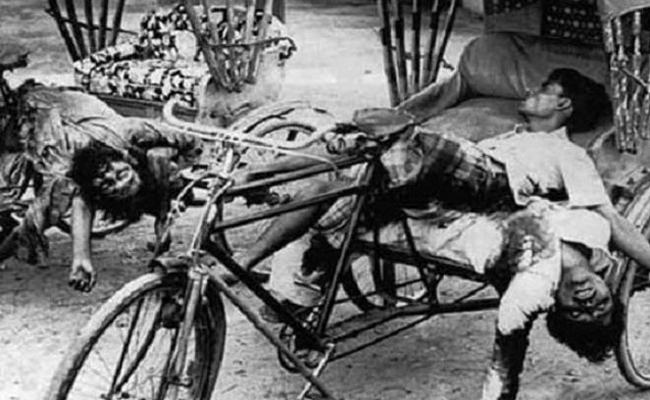DHAKA, Mar 26, 2021 (BSS) – International Crimes Strategy Forum’s (ICSF) has urged the government for making ‘global recognition of genocide’ perpetrated during the 1971 Liberation War of Bangladesh as inseparable part of the country’s foreign policy.
The organization made the demand at an online discussion titled, “Global Recognition of 1971 Bangladesh Genocide” on 25th March, which has been declared “Bengali Genocide Remembrance Day” by the government, said a press release here today.
ICSF and members of Australian Bangladeshi Diaspora arranged the event.
Viewers from at least 26 cities of Bangladesh, Australia, UK, USA, Canada, Malaysia, South Korea, and Japan joined the programme virtually which began at 4pm (BDT) and was broadcasted live through facebook, YouTube, and twitter, said the release.
Columnist Dr. Ezaz Mamun from Canberra inaugurated the discussion with his welcome speech.
He outlined the historical context of 1971 Bangladesh Genocide and its global recognition.
It was followed by one-minute silence in remembrance of the genocide, and then a critically acclaimed documentary title “Creed for Justice” was played.
At this point the main discussion began where discussants talked about various dimensions of global recognition of Bangladesh Genocide.
Former Chair of Bangladesh Human Rights Commission Prof. Mizanur Rahman moderated the discussion.
At the beginning of the discussion, trustee of ICSF Dr. Rayhan Rashid, expounded on organizational stance on global recognition of Bangladesh genocide.
On behalf of ICSF, three specific recommendations were made to the government: one, Genocide perpetrated during 1971 needs to be included in the constitution of Bangladesh to secure its constitutional recognition; two, “Global Recognition of Bangladesh Genocide” should be treated as an inseparable part of foreign policy; and three, there should be reflections of the lessons learned from previous genocides in conducting state affairs.
In her statement, Shirin Akhtar, MP, mentioned that the parliamentary resolution adopted on 2017 on Genocide Remembrance Day is legally non-binding.
This is why she promised to discuss with the Prime Minister the point of including the matter of 1971 genocide into the constitution.
She also expressed her willingness and resoluteness to work toward global recognition of the Bangladesh genocide along with her like-minded colleagues.
Member of Bangladesh Human Rights Commission Dr. Namita Halder commented that genocide was the highest form of Human Rights violation.
She also promised to ask the government through BHRC to get further involved in the work of securing global recognition of 1971 Bangladesh Genocide.
In response to questions or points raised on behalf of ICSF, the High Commissioner of Bangladesh in Australia reassured that Bangladesh Foreign Ministry will certainly work with the Diaspora to secure the global recognition of Bangladesh genocide.
He further mentioned that all the diplomatic missions of Bangladesh around the globe can work in tandem and utilize their networks to further the cause of this global recognition of Bangladesh genocide.
Professor Emeritus of Macquarie University echoed ICSF’s proposal in saying that it is especially important for the issue of global recognition of Bangladesh genocide to become a part of Bangladesh’s foreign policy.
He also stressed the importance of quality academic research work on Bangladesh genocide.
Among the members of the Bangladeshi Australian diaspora, Lilac Shahid, Dr. Kamal Uddin, Dr. Abu Taher Mollick, and Ignatious Rozario also participated in the discussion.
The moderator took questions from face book, zoom, and other social media platforms all throughout the program and had relevant discussants respond to them.
After the discussion, moderator Prof. Mizanur Rahman provided a summary and said, “Till now, 1971 Bangladesh genocide has failed to get recognition. We do not want to understand politics; we do not want to become a part of geopolitics and its myriad equations; we just want justice for the crime and savagery perpetrated on our people, on our country, on our motherland.”
Towards the very end, former professor at Queensland University Dr. Mohammad Alauddin thanked all the organizers, volunteers who worked behind the scenes, and all the people who actively asked questions and made comments. He also expressed his hopefulness as he concluded the program.
ICSF is an independent global network of experts and activists operating in the interest of justice for the victims and a long-time campaigner for recognition of international crimes committed against the Bengali populace in 1971.
ICSF believes Bengali Diaspora residing all over the world can be a formidable force in terms of securing the global recognition of genocide perpetrated in Bangladesh during 1971, the release said.



